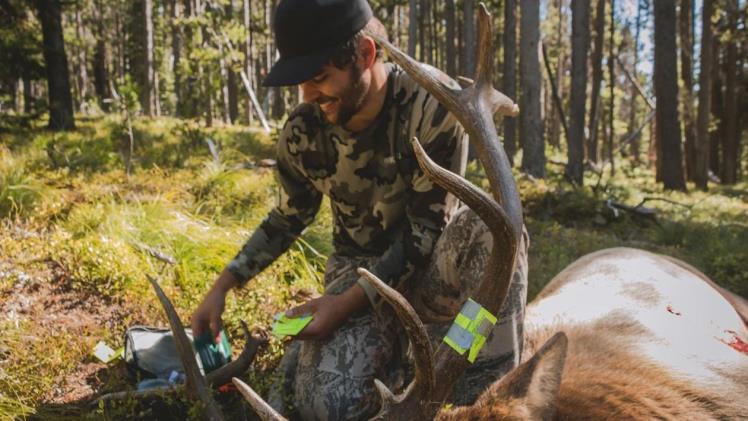Embarking on your first hunting trip is an exciting venture filled with anticipation and a sense of adventure. It’s a rite of passage for many outdoor enthusiasts, offering a unique connection to nature and an opportunity to test your skills and patience. However, a positive first hunting experience doesn’t happen by chance; it requires careful planning, preparation, and respect for wildlife.
In this guide, we’ll walk you through essential tips and insights to ensure your first hunting trip is both successful and memorable.
Preparing for the Hunt
Essential Gear and Clothing for First-Time Hunters
Before setting foot in the wilderness, having the right gear is crucial. Here’s a checklist of essentials:
- Clothing: Opt for durable, weather-appropriate clothing in camouflage patterns to blend into your surroundings. Layers are key for adjusting to temperature changes throughout the day.
- Footwear: Invest in high-quality, waterproof boots with good ankle support.
- Weaponry: Depending on your preference and local regulations, you’ll need a rifle, shotgun, or bow. For bowhunters, consider using arrow broadheads, which are essential for accurate and humane kills.
- Optics: Binoculars or a spotting scope will help you locate game from a distance.
- Backpack: A sturdy backpack to carry your gear, food, and water.
- Safety Gear: Always wear a blaze orange vest or hat to ensure visibility to other hunters.
- Miscellaneous: A knife, first-aid kit, map, compass/GPS, and a hunting license.
Safety Guidelines and Precautions
Safety should be your top priority. Follow these guidelines to ensure a safe hunting experience:
- Firearm Safety: Always treat your weapon as if it’s loaded. Keep the muzzle pointed in a safe direction and your finger off the trigger until ready to shoot.
- Buddy System: Never hunt alone; having a partner increases safety and provides assistance in case of emergencies.
- Communication: Inform someone of your hunting location and expected return time.
- Emergency Preparedness: Carry a basic first-aid kit and know how to use it.
- Weather Awareness: Check the weather forecast and prepare for sudden changes.
Choosing the Right Location
Factors to Consider When Selecting a Hunting Spot
Choosing the right location can make all the difference for a successful hunt:
- Game Availability: Research areas known for the game species you intend to hunt.
- Accessibility: Consider the terrain and your physical capabilities. Ensure your chosen spot is accessible and not too challenging.
- Hunting Pressure: Areas with less hunting pressure often result in a more enjoyable experience and better chances of spotting game.
Tips on Finding Public Hunting Lands and Local Regulations
Public lands are excellent options for first-time hunters:
- State Wildlife Agencies: Use state wildlife agency websites to find public hunting lands and obtain maps.
- Local Regulations: Familiarize yourself with local hunting regulations, including season dates, bag limits, and any special restrictions.
- Permits and Licenses: Ensure you have the necessary permits and licenses required for your hunting location.
Understanding Wildlife Behavior
Common Game Species and Their Habitats
Understanding the behavior and habitats of your target species increases your chances of success:
- Deer: Typically found in areas with abundant food sources such as agricultural fields, forests, and water sources. They are most active during dawn and dusk.
- Turkey: Prefer wooded areas with open fields for foraging. Listen for their distinctive gobbling sounds.
- Small Game: Rabbits, squirrels, and other small game can be found in dense vegetation and forested areas.
How to Track and Scout for Animals
Effective scouting and tracking techniques include:
- Tracks and Signs: Look for tracks, droppings, and feeding signs.
- Game Trails: Identify and follow well-used trails.
- Water Sources: Animals frequently visit water sources; set up near ponds, streams, or rivers.
- Trail Cameras: Use trail cameras to monitor wildlife activity and patterns.
The Hunt
Basic Hunting Techniques and Strategies for First-Timers
Mastering basic hunting techniques is essential:
- Still Hunting: Move slowly and quietly through the woods, stopping frequently to scan for movement.
- Stand Hunting: Set up a tree stand or ground blind in a strategic location where game is likely to pass.
- Calling: Use game calls to attract animals. Practice your calling techniques beforehand to ensure they are effective.
Ethical Hunting Practices and Respecting Wildlife
Ethical hunting is paramount to preserving the sport:
- Responsibility: Only take shots you are confident in to ensure a quick, humane kill.
- Respect for Wildlife: Practice fair chase principles and avoid harassing or stressing animals unnecessarily.
- Conservation: Follow all regulations and participate in conservation efforts to support wildlife populations.
After the Hunt
Tips on Field Dressing, Processing, and Storing Game
Proper handling of game after the hunt is crucial:
- Field Dressing: Learn how to field dress your game immediately to prevent spoilage. This process involves removing internal organs and cooling the meat.
- Processing: Depending on your preference, you can process your game at home or take it to a professional butcher.
- Storage: Ensure you have proper storage solutions, such as a freezer, to keep the meat fresh.
Reflecting on the Experience and Planning for Future Hunts
Take time to reflect on your hunting experience:
- Lessons Learned: Assess what went well and what could be improved for future hunts.
- Planning: Use your newfound knowledge to plan future hunting trips, focusing on areas for personal growth and skill development.
Conclusion
Your first hunting experience is a journey of discovery, skill-building, and connecting with nature. By following these tips and embracing the responsibilities that come with hunting, you can ensure a successful and enjoyable experience. Remember to respect wildlife, practice ethical hunting, and continuously seek to improve your skills.
We encourage you to share your experiences and any questions in the comments below—let’s create a supportive community of first-time hunters eager to learn and grow.






